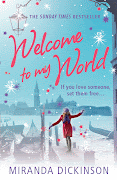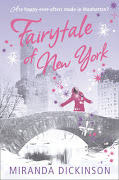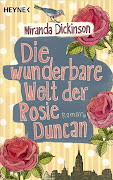
There has been - unsurprisingly - a humungous amount of publicity in the past couple of days about the announcement of J.K. Rowling's new novel. Aimed at adults this time (although I know an awful lot of 'grown-up kids' who adore her previous work!), the novel will be very different from the books she has become famous worldwide for. So, is it a good move?
 Photo © Wall to Wall Media Ltd. Photographer: Andrew Montgomery
Photo © Wall to Wall Media Ltd. Photographer: Andrew MontgomeryAll the blaze of publicity yesterday about the new novel - and the resulting response on twitter, news sites and blogs - was fascinating to watch. As ever, twitter served up the most witty responses, with most of the reaction good-natured and positive. People seem to be genuinely intrigued to see what a 'different book' by J.K. Rowling will look like. But some in the media seem to be quite miffed that she's writing 'out of her genre' (I apologise for the awful phrase) - and this made me think about the preconceptions and labels that a lot of authors deal with.
I read a fantastic interview of Stephen King by Neil Gaiman in The Sunday Times Magazine last week, where he was asked whether he saw himself as a horror writer - and whether he minded being labelled as such. He didn't mind at all, but said, 'I never thought of myself as a horror writer. That’s what other people think.' Of course, Stephen King has written a great deal of other stories and books that aren't horror at all (I know because I am a complete wuss and those are the only ones I've felt brave enough to read!), but he admitted that it took a long time for him to be recognised for this.
Being stereotyped is something that unfortunately all authors will face. Imagine the media furore if Hilary Mantel wrote an urban fantasy novel, or Jeffery Deaver published an emotional family saga (although personally I would love to read either of those!) While I love, love, love writing romantic comedy, I also have ideas for other stories that are different. My short stories, for example, are significantly darker in style than my novels. And I have a comedy urban fantasy novel currently being rejected a lot by major publishers (under my pen-name of Ellis Parker). I'm working on an idea for a story that combines a natural gift with a murder case. I have a children's story idea bubbling away in the background... Will any of them ever see the light of day? Maybe not, but I hope that one day I can share some of them with the lovely people who read my stories. In the meantime, it's perfectly OK to want to write different stuff and I think it's good for me as a writer to try out other styles of writing because of what it teaches me. A crucial part of being a writer is exploring new stories - whatever shape or flavour they might be.
While many of us writers can only marvel at the phenomenal success of J.K. Rowling, I do wonder if she ever felt hemmed in creatively by the novels she created. I know some people would argue that she didn't have anything to complain about, what with all the money she was making, but writers know that writing is about more than just making a living. Expression is something you can't put a price on - as is inspiration. I wonder if she had a million and one other ideas bubbling away as she worked on the behemoth of the Harry Potter series (a common ailment amongst writers) - was it ever a source of frustration to her that she couldn't explore these?
I don't know whether The Casual Vacancy will sell gazillions or be moderately successful. I suspect that her legion of fans will buy whatever she writes (because readers aren't as bound by labels as the media or publishing industry seem to be). And in a way, it doesn't matter. Practically speaking, she's more than proved herself and it's less of a risk because her mortgage doesn't depend on its success. But I applaud her for showing another side to her craft.












1 comment:
thanks much for this update on j.k. rowling. my take on this is that much as we would love for authors to keep on writing stuff that are in their "comfort zones", we also must recognize that these wordsmiths, and these include you, are creators and they should be at liberty to create as they please.
Post a Comment